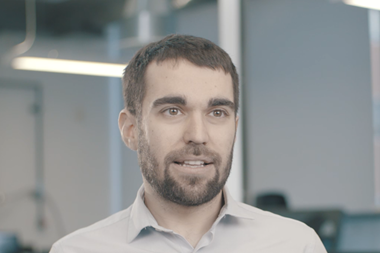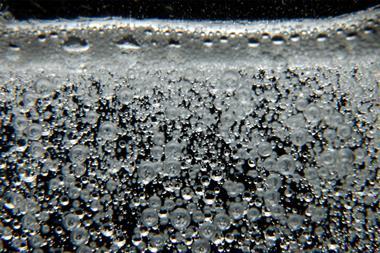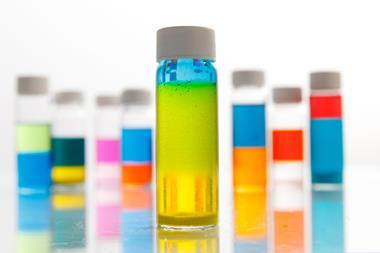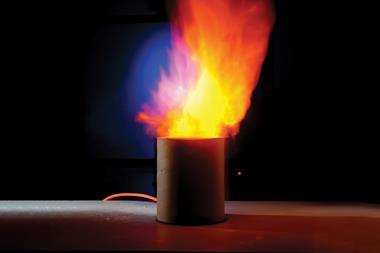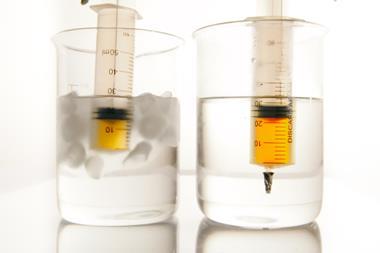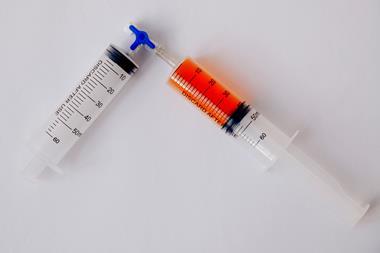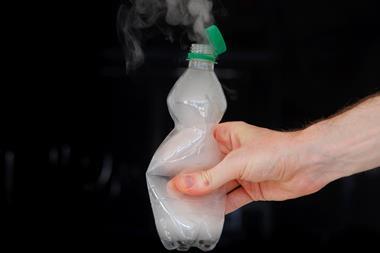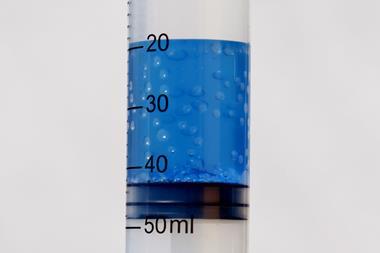Everything you need to know
-
- Salary range: £25–40k
- Minimum qualifications: Degree-level qualifications (including master’s) plus a PGCE with Qualified Teacher Status (QTS). To become a chemistry teacher in the UK, your degree must consist of at least 50% chemistry content.
Undergraduate degree studied at: University of Central Lancashire - Skills required: Teaching calls on every possible skill you have, but most importantly communication, leadership, negotiation, and mediation.
- Training required: Postgraduate teacher training to complete a PGCE with Qualified Teacher Status (QTS). There are many sources of funding and scholarships available to support those who wish to train to teach (including the Royal Society of Chemistry).
- Work–life balance: Teaching lessons will occur within core school hours (eg, 9.00am to 3.30pm), with additional lesson planning, content creation, marking and administrative tasks outside of the school's core hours, which will require working overtime.
- Career progression: There may be the opportunity to progress to more senior roles and managerial roles, for example, Head of Year, Deputy Head, Head of School.
- Locations: Find related work experience positions using our map of employers
More profiles like Alice's
Hear Alice more talk about being a chemistry teacher during National Careers Week 2021 on the Royal Society of Chemistry Instagram

What do you love about your job?
Working with children and teenagers, not only teaching them chemistry but also arming them with the life skills they will need to thrive in the future. Being a positive female role model to those who need it.
What is your typical day like?
Although I have a structured timetable to stick to, with set lessons to plan and deliver, every day is very different. I could see 90 students in a day – that’s 90 variables that could deliver a challenge or present something they need my help with.
- 0745: Aarrive at work and check over the lessons that I have planned for the day, check emails, respond to issues, etc.
- 0840: Form time with my Year 9 tutor group. This usually involves doing a daily prayer, discussing the news together, reading time, or sometimes just helping with day-to-day problems.
- 0905: Period 1, GCSE chemistry with year 10 teaching chemical changes with a practical element to the lesson.
- 1045: Break duty, which may seem a chore, but it’s a great time to get to know more faces around the school and build relationships with students that are not in your classes.
- 1105: Period 2, I have a free period so I will work on my lesson planning for the week ahead. Grab a coffee and usually phone a few parents of students who have made a great effort in the last few lessons.
- Lunchtime: Catch up with my colleagues over lunch, as a teacher you spend a lot of time as the only adult in the room so it is nice to talk to other teachers. Often students pop to see you at lunchtime with problems or questions too.
- 1325: Period 3, year 7. This is a science lesson rather than just chemistry, usually, a secondary school teacher will be expected to teach across specialisms in KS3. On this particular day, I’m teaching ‘Specialised Cells’.
- 1510: End of the school day. I tend to do my lesson planning at home, but if I have some bookmarking to do I will stay in school and get that done. A nice thing about teaching is that it’s up to you when and where you do your work outside of the classroom.
How did your qualifications help you get your job?
After my A-Levels in biology, chemistry, physics and maths, I did biomedical science at university and found that the biochemistry strand, was my favourite part. I went out to work in business but after a couple of years, I realised I just really wanted to do my teaching.
What tips or advice would you have for someone looking to get into the role?
Study hard but also develop your personal skills, transferable skills and pursue extracurricular activities too. A combination of these things is so useful when heading into any place of work.
How were you inspired to work in chemistry?
Chemistry touches so many aspects of our lives, many things that we overlook are designed or powered by chemists. It is an incredibly powerful subject to teach, especially at A level where students have the desire to pursue chemistry further, this keeps you motivated as a teacher because you are enabling the next generation of chemical engineers, medics, biochemists, analytical chemists, and pharmacologists, just to name a few!
Want to find out more?
- Routes into teaching slightly differ by UK nation so look at your respective website for the latest information about routes into teaching and the support that is available for chemistry graduates to become teachers.
- England and Wales: Get into Teaching
- Scotland: Teach in Scotland
- Northern Ireland: Teaching training options
- The Royal Society of Chemistry teacher training scholarship scheme is open to those who already hold a chemistry (or equivalent) degree and are looking to teach in a secondary school in England.
- Getting experience in a school is incredibly valuable. Ask your careers adviser, a teacher you know, or contact your local school to see if you can go in and observe some chemistry lessons and experience the school environment as an adult. This is a great way to get a feel for the job and if it is something you want to pursue.
- Find out about becoming a chemistry teacher
First published 2021
Additional information








